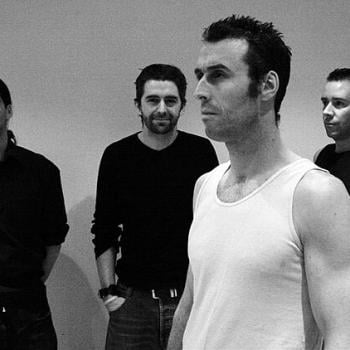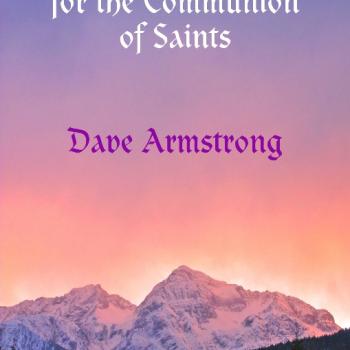At my age, I am not auditioning new best friends. I have the friends I have, and I don't need any more. On the other hand, if a really fantastic human being walked into my life, I would be a fool to lose the chance of being transformed.
Likewise, while I have always loved discovering new music, I'm not out there actively looking. I have almost a month's worth of music from the past eight decades stored on my iTunes, and I can't listen to even a fraction of what I have now.
On the other hand, if a really fantastic band walks into your living room, only an idiot would refuse to listen to them.
I recently heard an interview on NPR's Morning Edition with the leader and songwriter of the indie band Cloud Cult, Craig Minowa. I liked the musical selection they played.
And like virtually everyone who was listening—like anyone, I'm sure, who has ever heard him speak of it—I was transfixed and shattered by the band's back story. A decade back, Craig and his wife Connie unexpectedly lost their two-year-old son Kaidin, and Craig has sought to grapple with that grief and loss through his music ever since.
Like many of those on the NPR's story page who heard the story and wrote in to comment after being strongly affected, I have been broken by loss, and sometimes I haven't known how to go on. But, as with many of those listeners, in those hard times, it was often music and story, shared by artists with compassion and with the courage to tell the truth, that helped me take one step, and then another.
I downloaded Cloud Cult's new album Love, and I listened to it for four days around the clock as I was finishing the new novel I've been writing with spiritual writer Brennan Manning, The Prodigal. As the title suggests, our book is about fathers and sons, about loss and grief and unexpected grace, and I could not have chosen a better musical companion for the hard final stretch than Cloud Cult.
Some of you have been Cloud Cult fans for a while; they've been around since the '90s. If you've never heard their music, they are a big band in every musical sense of that description: a lot of members, a lot of different instruments, a panoply of musical styles, and the willingness to write songs about big emotions and big ideas. At one moment they might remind you of Arcade Fire or Polyphonic Spree; at another you might hear echoes of The Edge. But in all of their songs, Minowa is writing about navigating this difficult journey we call life, and offering light in the darkness that comes from his own hard-earned wisdom.
Reviewers have cited songs from previous Cloud Cult albums that dealt directly with the loss of Kaidin—and encouraged you maybe not to listen to the album in public if you have half a heart. You may end up weeping on this album, too. But you'll also clap your hands and laugh out loud and give thanks. Over and over again, Minowa tells us that despite it all, it's going to be okay, gives us words of affirmation, and encourages us to lean forward into life trusting each other.
I know there's only a minute distance between aphorism and cliché, and the truth is that some of what the band sings here is not new, although distinctive and wise lines are sprinkled throughout. But whether you find the affirmations trite or true depends on one of the central themes of the album: Do you want to live in cynicism or in hope?
I want to think of the friendly affirmations of hope on Love not as sappy slogans, but as being like Kathleen Norris's story about the Greek Orthodox priest advising the doubting seminarian to keep saying the Creeds: The more you say them, the more true they will become for you. And while sometimes the words are familiar, it's also true that in the same song you may find a mixture of the familiar and the jarringly beautiful. So in an upbeat song like "Good Friend," whose rollicking chorus is "All I need is a good good friend, To get me through this," we also find
We are not broken ones,
Just shattered pieces of the same bright sun
Trying to figure out which way to run
And we can't do this alone
and this:
Life is a playground, but it takes a lot of work
So you better learn to love, or it will tear you apart
Cause in the end we are measured by the size of our heart.
The Beatles' "All You Need Is Love" may in fact be a sentimental slogan. But it is also a song that could save your life, or change it. And that's what I found over and over again in listening to this album: Well-constructed songs of grief, confusion, and joy, blending over the course of a well-constructed album to call me to do more, to do better, to live large or go home.





